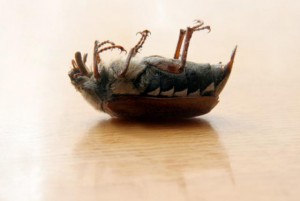In Young Goodman Brown, I believe that the devil was having a meeting with Mr. Brown in order to persuade Mr. Brown to worship him (Page 2, p.13). This is greatly exemplified with Mr. Brown stating that his father “never went into the woods on such an errand, nor his father before him and that his race was of honest men and good Christians, since the days of the martyrs” (Page 3, p.17). Mr. Brown also states that his family was a “people of prayer and good works and that they abide no such wickedness” (Page 3, p.19). However, the devil claims to Mr. Brown that he had been “well acquainted with his family, that he helped his father and grandfather, and that both were good friends to him” (Page 3, p.18). Mr. Brown denied the devil’s invitation because he wanted to stick to the faith that he grew up in, saw that it was not morally right, and did want to let his wife, Faith, be saddened by his wicked decision. The story gets very interesting at the end when Mr. Brown sees people from his town, that he thought was devout Christians, chanting demonic incantations, in a ritual like communion, even his wife was involved (Page 8, p. 56-Page 10, p.69). Therefore, Hawthorne was allegorically stating that people can put a façade of being holy or pious but are really not what they display because they can be living a hidden life of sin that can only be discovered through revelation.
In The Metamorphosis, Gregor transformed from a human travelling salesman into an insect, whether it was a cockroach or beetle, all I could say was “eeeewwww” throughout the duration of my reading. This is greatly exemplified when Gregor wakes up to find his human body transformed on his bed. He discovered that he had “many legs” (Page I, p.1), that his voice was “beginning to sound more like an animal” (Page I, p.20), and that he “lacked any teeth” (Page I, p.22). When Gregor tried to excuse himself for his tardiness to the visiting chief clerk from his job, the whole family, including the chief clerk, was mortified to see what Gregor had become. So, Gregor’s father began to chase Gregor with a stick until he returned to his room (Page I, p.26). In that process of being pushed into his room, “a side of Gregor’s body was painfully injured, leaving vile brown flecks on his white door” (Page I, p.26). This is the point of the story that truly shows that Gregor is a disgusting pest. All I kept thinking was that “he is a cockroach.” Also, I thought about the times I have killed a cockroach. Whenever I would finish stepping on a roach, I would always see smeared brown flecks from the dead roach on the bottom of my shoes, eeeewww.




